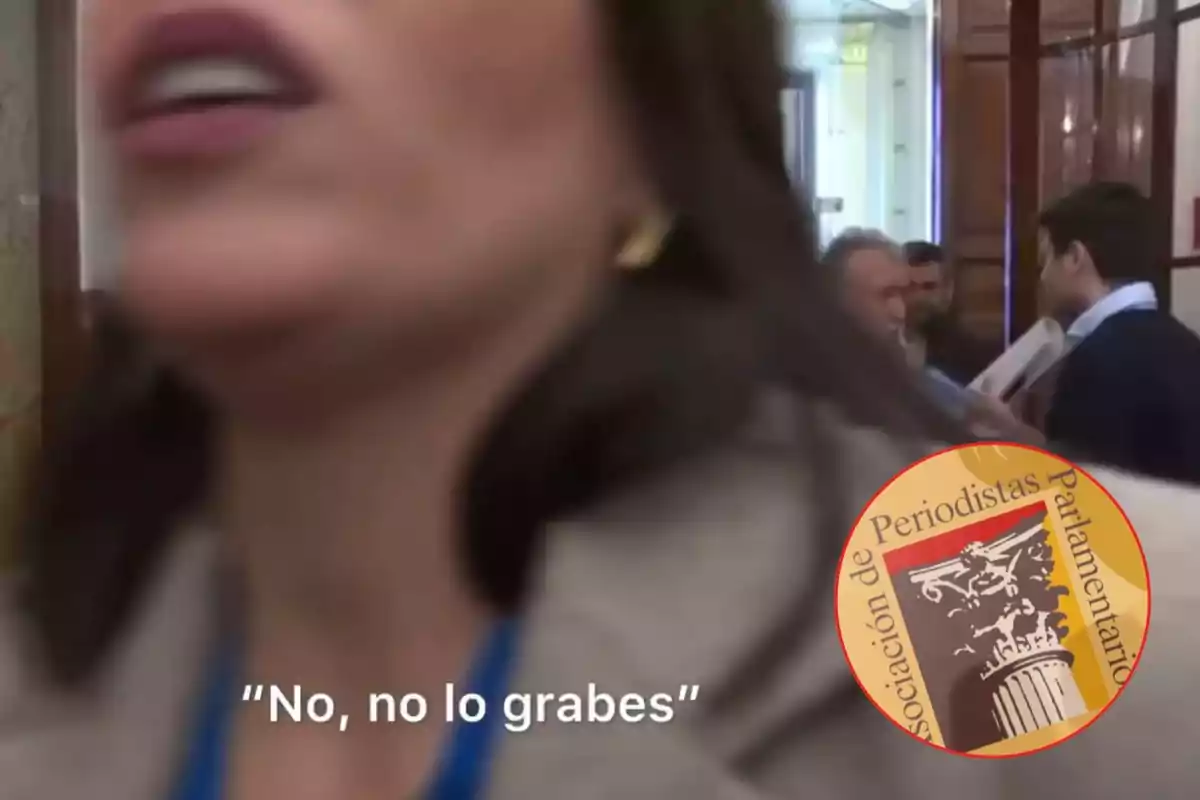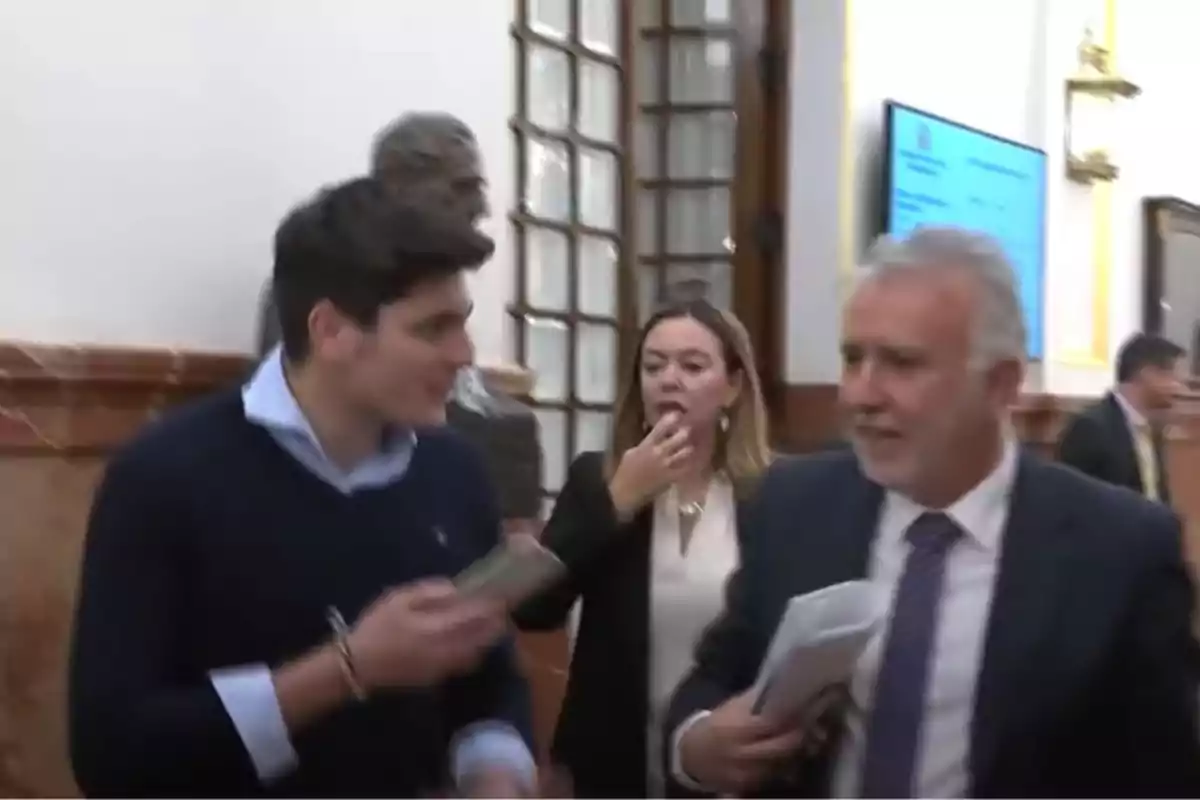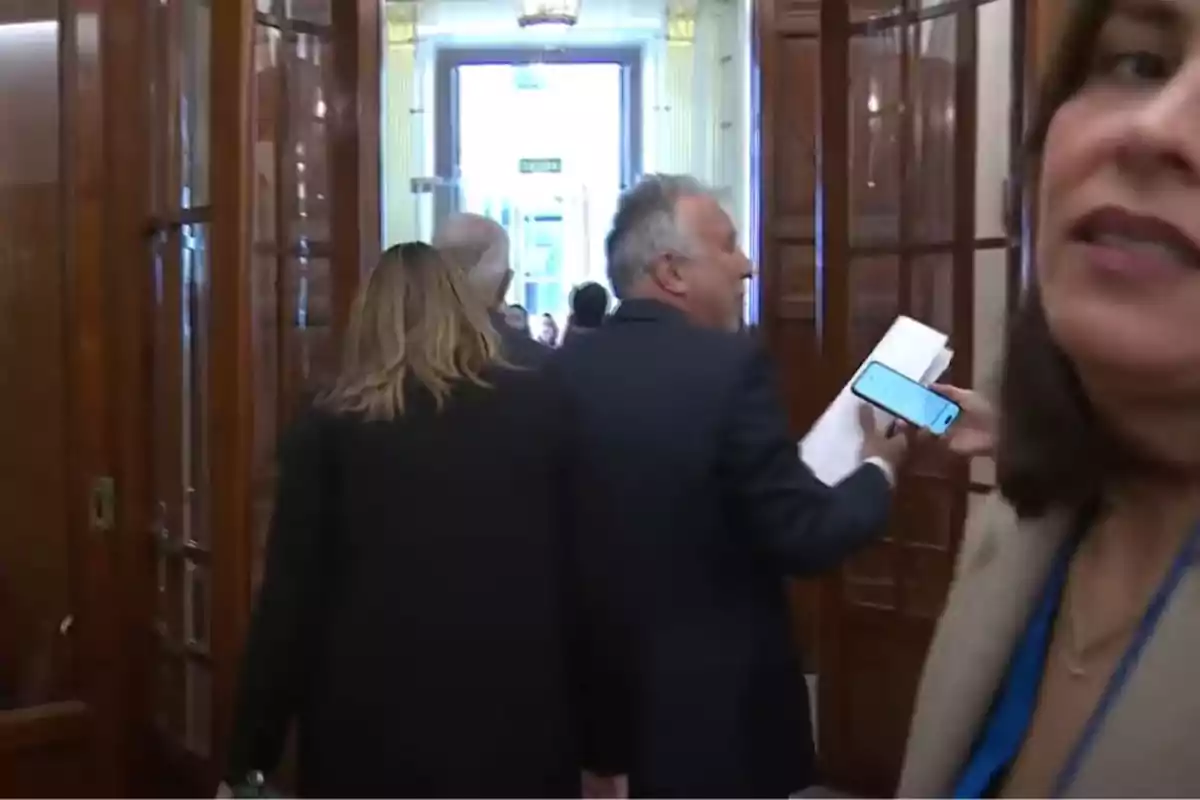
The App Remains Silent on Censorship and Supports the Journalist Who Interrupted Vito Quiles
According to the Congress protocol, institutional cameras record these interactions, but on this occasion, the journalist from La Sexta interrupted
New Controversy in the Congress of Deputies After an Incident Involving La Sexta Journalist Irene Rupérez. Who ordered a Congress cameraman to stop recording the question posed by EDATV journalist Vito Quiles to Minister Ángel Víctor Torres.
The episode took place when Quiles approached the minister to ask a question. According to Congress protocol, institutional cameras record these interactions, but on this occasion, the La Sexta journalist interrupted and demanded that the recording be stopped.
This action has been interpreted as an attempt to censor the EDATV journalist, generating criticism on social media and among industry professionals. The image of Rupérez giving the order to cut the recording has fueled the debate on press freedom and the unequal treatment of different media outlets in the Lower House.

Amid the Controversy, the Association of Parliamentary Journalists issued a statement not only defending the La Sexta journalist. But also accusing certain sectors of harassing her on social media with insults and threats. However, the APP avoided commenting on the interruption suffered by Vito Quiles and the attempt to halt the dissemination of his question.
The APP's statement has been harshly criticized for its apparent double standard. While it stands as a defender of press freedom and journalistic ethics, it remains silent on the censorship exercised within Congress. The association has been criticized for its biased stance and for justifying actions that undermine the right to information.

This episode has reignited the debate on the bias of certain media outlets and the attitude of some journalists within Congress. For many, what happened with Quiles is a clear example of how those who do not follow the official line in the parliamentary sphere are silenced.
It should be remembered that in Congress only institutional cameras can record images, while audio can be captured using microphones or recorders. In this case, Quiles chose to record the audio with his device, while the La Sexta journalist, with the official microphone, attempted to ask her own question to the minister.
The controversy has called into question the role of the APP. An association that has repeatedly positioned itself in defense of certain journalists. But is now criticized for ignoring the censorship exercised against a colleague in the full exercise of his informative work.
More posts: